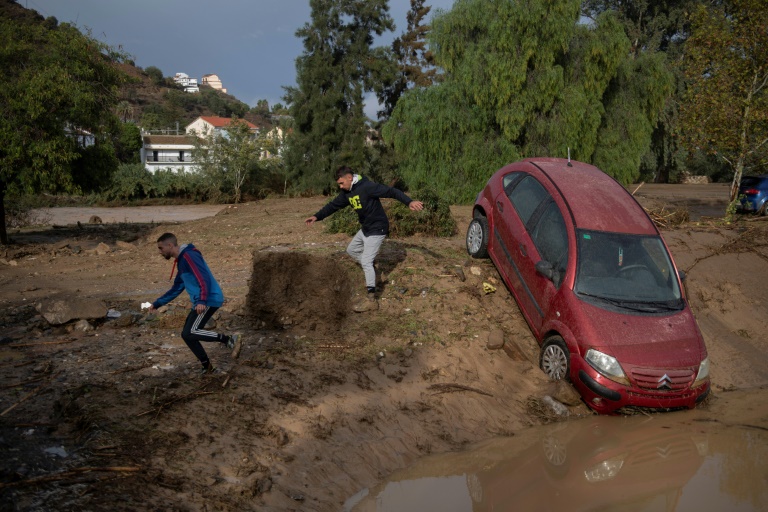On Tuesday, southern and eastern Spain experienced severe disruptions due to torrential rains that resulted in flash floods, leading to the disappearance of seven individuals. The floods particularly devastated the town of Letur in Albacete, where raging waters swept vehicles through the streets, as highlighted by various reports and footage broadcast by Spanish television. Emergency services, assisted by drones, were mobilized to locate the six missing individuals, with Milagros Tolon, the central government representative in Castilla-La Mancha, emphasizing that the primary focus was on their safe recovery. Meanwhile, authorities in L’Alcudia, located in the Valencia region, initiated a search for a truck driver who had also gone missing amid the chaos caused by the severe weather.
Spanish Prime Minister Pedro Sanchez expressed his concern over the reported missing persons and the extensive damage inflicted by the storm. He urged citizens to heed official warnings and exercise caution, advising them to avoid unnecessary travel during the tumultuous weather conditions. The impact of the storm extended to air travel, with twelve flights heading to Valencia airport being redirected to alternative locations due to the torrential rain and high winds. Additionally, ten other flights scheduled to either depart from or arrive at the airport were canceled, further illustrating the severe impact of the storm on transportation.
In light of the extreme weather, Valencia city officials announced the suspension of all school classes and sports events scheduled for Wednesday, and parks within the city limits were ordered to remain closed. The national rail infrastructure operator, ADIF, responded by halting all rail services in the Valencia region for safety reasons, advising that these services would not resume until conditions improved. Travel on high-speed trains connecting Madrid and Valencia was also suspended until at least 10 am on the following day, signaling the widespread disruptions across different modes of transportation stemming from the storm’s aftermath.
In addition to the troubling situation in Valencia, a high-speed train carrying 276 passengers in Andalusia derailed, although fortunately, no injuries were reported, highlighting the precarious nature of travel during this extreme weather event. Emergency services in Andalusia were kept exceptionally busy, conducting rescue missions for numerous individuals trapped in Alora after rivers overflowed their banks. Some of these rescues were executed via helicopter, showcasing the extreme measures taken by emergency responders to safeguard the affected population.
The severity of the floods prompted the state weather agency AEMET to issue a red alert for the Valencia region and a second-highest level alert for parts of Andalusia. The floods caused significant disruptions to local infrastructure, leading to highway closures and making many areas difficult to access. In light of these developments, the local governments and emergency services were fully engaged in managing the crisis and addressing the immediate needs of those impacted by the storms.
This disturbing weather event comes against a backdrop of scientific warnings about the increasing intensity of extreme weather occurrences, such as heatwaves and storms, attributed to climate change. The ongoing situation in Spain serves as a poignant reminder that communities worldwide need to prepare for and adapt to the escalating impacts of climate-related phenomena. As rescue efforts continue and affected areas seek to regain normalcy, the broader implications of climate change on weather patterns remain a crucial topic for discussion and action moving forward.

